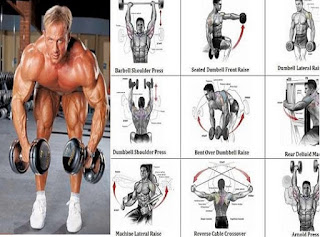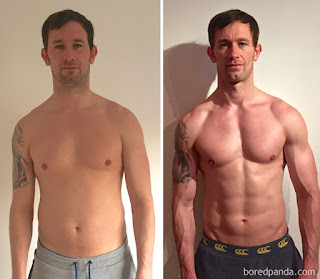What To Eat For Cross Training ? Nail Your Nutrition
Workouts at CrossFit gyms are strenuous and fast-paced.
They change daily and involve gymnastics, weightlifting and cardiovascular exercises, such as running and rowing, among other activities.
To do your best, you have to be properly fueled. In fact, nutrition is viewed as the foundation of CrossFit training and critical to performance.
The CrossFit diet is moderately low in carbs and emphasizes consuming macronutrients from whole plant foods, lean proteins and healthy fats.
Here is a closer look at the CrossFit diet, including what to eat and what to avoid.
What to Have Before Cross Training
1. Low-GI carbohydrates
You need plenty of carbohydrates before any type of workout — especially if it’s as strenuous and physically demanding as cross training — as they can be most efficiently metabolised by the body during exercise to provide energy. In fact, a recent expert panel report published in Nutrition Today concluded that carbohydrates were “indispensable” to an athlete’s diet.1
Glycaemic index is the ranking of carbohydrates in relation to how they affect blood sugar levels. It’s generally agreed that carbohydrate sources with a low glycaemic index are a better choice, as they provide a more sustained release of energy and therefor a steady blood sugar level, rather than a spike and crash.
Examples of carbohydrates with a low glycaemic index:
You should aim to eat these carbs at least an hour or two before your session, in order to give your body a chance to digest them properly.
2. Protein
It’s pretty well known that protein is a must-have for post-workout nutrition, as it’s vital for building and repairing muscle. However, what’s not quite as well-known is that it can be just as beneficial to have protein before your workout too.
Recent research has shown that consuming protein both pre- and post-workout is better for stimulating muscle growth.3
Good sources of lean protein include:
Beetroot probably isn’t what immediately springs to mind when you think of pre-workout snacks, but it’s recently gained popularity within the sports nutrition world for its unexpected performance-enhancing effects.
This comes down to the fact that beetroots have high levels of nitrates — a compound that has the effect of increasing blood flow to muscles. One journal study concluded that consumption of whole beetroot improves running performance in adults,4 perfect for helping you smash hero workouts like ‘Murph’.
4. Caffeine
Okay, so you’re probably no stranger to the perks of caffeine, but did you know that when it comes to exercise, its effects go far beyond just ‘waking you up a bit’.
Studies have shown that it can delay fatigue and increase power output, as well as improve concentration and alertness5,6 — making it a pretty invaluable addition to your pre-workout routine.
What to Have After Cross Training
1. Protein — with a high-carb content
As touched upon before, protein should definitely be your go-to after exercise if you want to support muscle growth. This is because you need to achieve what’s called a “positive net protein balance” which in turn promotes tissue growth, otherwise known as “anabolism”.
However, a study from the Strength & Conditioning Journal found that consuming protein and carbohydrates immediately or shortly after training “enhances the anabolic response” to resistance exercise.
Therefore, it seems like for the best muscle gains, you should be combining the two.
Good sources of protein that contain carbs too:
Despite being traditionally viewed as a relaxing bedtime beverage, or, if you’re American, the perfect accompaniment to a plate of cookies, a good old glass of milk might actually be a great after-training choice too.
Research has found that the proteins found in milk make it an effective drink to support greater muscle mass accretion, strength gains, and even fat mass loss.
3. Eggs
Eggs aren’t just a good source of protein, but they’re also particularly high in the essential amino acid, leucine, which research has found plays a key role in promoting muscle growth1 and recovery.
This makes them an ideal post-workout food to go for after a tough cross training class.
4. High-GI carbohydrates
After exercise, you need to replace muscle glycogen that you’ve used up — just think how much you’ll have burnt through during those killer sets of overhead squats and pull-ups.
Studies have found that the quickest way to replenish glycogen stores during the first 24-hours of recovery is by eating foods with a high glycaemic index10 — and who needs to be told twice to eat a load of potatoes and bread?
Examples of carbohydrates with a low glycaemic index:
They change daily and involve gymnastics, weightlifting and cardiovascular exercises, such as running and rowing, among other activities.
To do your best, you have to be properly fueled. In fact, nutrition is viewed as the foundation of CrossFit training and critical to performance.
The CrossFit diet is moderately low in carbs and emphasizes consuming macronutrients from whole plant foods, lean proteins and healthy fats.
Here is a closer look at the CrossFit diet, including what to eat and what to avoid.
What to Have Before Cross Training
1. Low-GI carbohydrates
You need plenty of carbohydrates before any type of workout — especially if it’s as strenuous and physically demanding as cross training — as they can be most efficiently metabolised by the body during exercise to provide energy. In fact, a recent expert panel report published in Nutrition Today concluded that carbohydrates were “indispensable” to an athlete’s diet.1
Glycaemic index is the ranking of carbohydrates in relation to how they affect blood sugar levels. It’s generally agreed that carbohydrate sources with a low glycaemic index are a better choice, as they provide a more sustained release of energy and therefor a steady blood sugar level, rather than a spike and crash.
Examples of carbohydrates with a low glycaemic index:
- Oats and muesli
- Brown rice
- Pasta
- Sweet potatoes
- Whole wheat or mixed grain bread
- Chickpeas, butter beans, lentils
You should aim to eat these carbs at least an hour or two before your session, in order to give your body a chance to digest them properly.
2. Protein
It’s pretty well known that protein is a must-have for post-workout nutrition, as it’s vital for building and repairing muscle. However, what’s not quite as well-known is that it can be just as beneficial to have protein before your workout too.
Recent research has shown that consuming protein both pre- and post-workout is better for stimulating muscle growth.3
Good sources of lean protein include:
- White fish
- Poultry
- Lean beef mince
- Low-fat cottage cheese
- Egg whites
- Tofu
- Chickpeas, beans and lentils
Beetroot probably isn’t what immediately springs to mind when you think of pre-workout snacks, but it’s recently gained popularity within the sports nutrition world for its unexpected performance-enhancing effects.
This comes down to the fact that beetroots have high levels of nitrates — a compound that has the effect of increasing blood flow to muscles. One journal study concluded that consumption of whole beetroot improves running performance in adults,4 perfect for helping you smash hero workouts like ‘Murph’.
4. Caffeine
Okay, so you’re probably no stranger to the perks of caffeine, but did you know that when it comes to exercise, its effects go far beyond just ‘waking you up a bit’.
Studies have shown that it can delay fatigue and increase power output, as well as improve concentration and alertness5,6 — making it a pretty invaluable addition to your pre-workout routine.
What to Have After Cross Training
1. Protein — with a high-carb content
As touched upon before, protein should definitely be your go-to after exercise if you want to support muscle growth. This is because you need to achieve what’s called a “positive net protein balance” which in turn promotes tissue growth, otherwise known as “anabolism”.
However, a study from the Strength & Conditioning Journal found that consuming protein and carbohydrates immediately or shortly after training “enhances the anabolic response” to resistance exercise.
Therefore, it seems like for the best muscle gains, you should be combining the two.
Good sources of protein that contain carbs too:
- Chickpeas
- Lentils
- Butter beans
- Kidney beans
- Haricot beans
- Black-eyed beans
- Quinoa
Despite being traditionally viewed as a relaxing bedtime beverage, or, if you’re American, the perfect accompaniment to a plate of cookies, a good old glass of milk might actually be a great after-training choice too.
Research has found that the proteins found in milk make it an effective drink to support greater muscle mass accretion, strength gains, and even fat mass loss.
3. Eggs
Eggs aren’t just a good source of protein, but they’re also particularly high in the essential amino acid, leucine, which research has found plays a key role in promoting muscle growth1 and recovery.
This makes them an ideal post-workout food to go for after a tough cross training class.
4. High-GI carbohydrates
After exercise, you need to replace muscle glycogen that you’ve used up — just think how much you’ll have burnt through during those killer sets of overhead squats and pull-ups.
Studies have found that the quickest way to replenish glycogen stores during the first 24-hours of recovery is by eating foods with a high glycaemic index10 — and who needs to be told twice to eat a load of potatoes and bread?
Examples of carbohydrates with a low glycaemic index:
- Potatoes
- White bread
- Short-grain rice
- Cereals like cornflakes
- Fruit




Commentaires
Enregistrer un commentaire